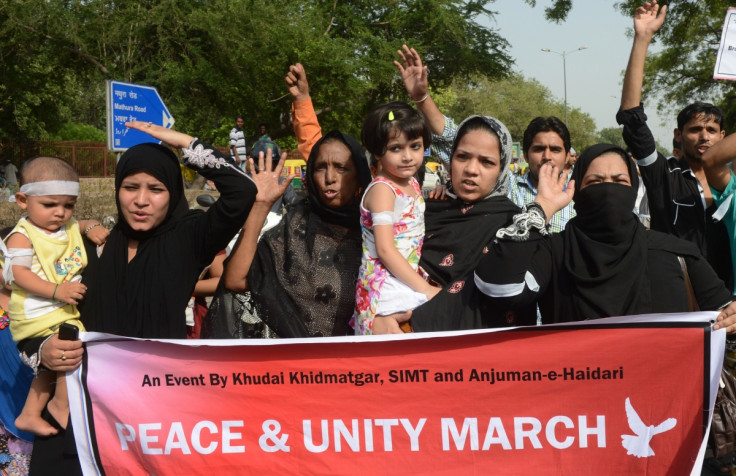Indian Muslim clerics issue fatwa against Isis and other terrorist groups for being 'non Islamic'

Up to 70,000 Muslim clerics in India have issued a fatwa against Islamic State (Isis), the Taliban and al-Qaeda, saying that they are "not Islamic organisations". Clerics also called on media organisations to stop calling the terrorist organisations "Islamic" groups.
The fatwa was issued on the final day of Urs-e-Razvi, a religious festival that sees Muslims across India visiting a shrine dedicated to a Sufi wali (saint) in the north western Indian state of Rajasthan. The fatwa was issued by clerics during the on the final day of Urs, with an additional 1.5 million Muslims then signing a petition against terrorist attacks, stating that the terrorists were "not Muslims".
"From Sunday onwards, when the annual Urs began, members of Dargah Aala Hazrat have been distributing forms among followers seeking signatures to show that those signing stand against terrorism," Mufti Mohammed Saleem Noori, one of the clerics who signed the fatwa, told the Times of India.
Hazrat Subhan Raza Khan, chairperson of spiritual centre of Dargah Aala Hazrat, said that they had decided to issue the fatwa in the wake of the Paris attacks in an attempt to send a message that the Muslim community condemns terrorism.
Meanwhile, Mohammed Ehsan Raza Khan, the head of the religious shrine, said that the Koran explicitly states that "killing one innocent person is equivalent to killing all of humanity". However, the Muslim clerics also condemned the bombing of Daesh (IS) in Syria by several Nato countries, including the UK, on the grounds that innocent women and children were being killed in the strikes. While they agree that countries should focus on eliminating terrorism, they said that it should not be done at the cost of innocent lives.
The shrine's madrassa (Islamic religious school) hasintroduced a new course entitled 'Islam and terrorism'. Graduate students on the course compare original quotes from the Koran with translations offered by terrorist groups in order to understand how the religious text can be twisted by extremists.
When asked about recent comments made by Republican presidential candidate Donald Trump on banning Muslims from the US, Noori said: "If one country imposes such a ban on Muslims, other countries will enforce such bans too, perhaps on other communities. That will only cultivate hatred and divide people."
© Copyright IBTimes 2025. All rights reserved.






















